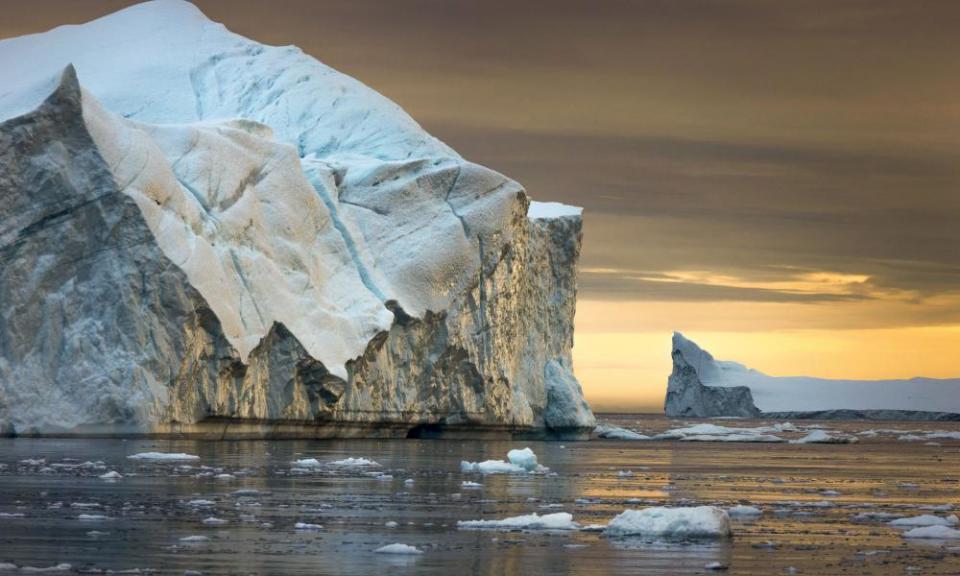World’s biggest investment fund warns directors to tackle climate crisis or face sack

Norway’s sovereign wealth fund, the world’s single largest investor, has warned company directors it will vote against their re-election to the board if they do not up their game on tackling the climate crisis, human rights abuses and boardroom diversity.
Carine Smith Ihenacho, the chief governance and compliance officer of Norges Bank Investment Management, which manages more than 13tn Norwegian kroner (£1tn) on behalf of the Norwegian people, said the fund was preparing to vote against the re-election of at least 80 company boards for failing to set or hit environmental or social targets.
Established in the 1990s to invest surplus profits from Norway’s huge oil and gas reserves, it is the world’s largest sovereign fund, controlling an average of 1.3% of 9,338 companies across 70 countries. Large holdings include Apple, Nestlé, Microsoft and Samsung.
Related: Joe Biden’s green subsidies have left Europe struggling for a response | Lorenzo Marsili
“We all know, we live in a world with a climate crisis, and we have a role to play and then companies have a role to play,” Smith Ihenacho said. “So we have stepped up our expectations towards the companies when it comes to setting targets to get to that net zero [emissions] by 2050 target. And we will push the companies more in setting targets and understanding how they’re going to get there.”
It comes as the prime minister of Norway, Jonas Gahr Støre, bowed to public pressure to release more money from its oil profits to help support Ukraine. The country donated 10bn kroner in civilian and military aid last year.
“We are in a situation where we have room for action due to extraordinary income from the petroleum sector,” he said. “We are now stepping up this aid. We will contribute even more to the repair and reconstruction of damaged infrastructure.”
The fund, which holds the equivalent of about 2.4m kroner ($240,000 or £200,000) for each man, woman and child in Norway, invests parts of the large profits generated by the Norwegian petroleum sector, mainly from taxes of companies but also payment for licences to explore for oil as well as the State’s Direct Financial Interest and dividends from the partly state-owned energy giant Equinor.
Smith Ihenacho said the fund, which this week recorded a loss of 1.64tn kroner for 2022, expected all large carbon emitters to set emissions targets now, and all other smaller companies to have done so no later than 2040. “We also want companies to publish scenarios including [what happens if temperatures rise by] 1.5C so we can actually understand how they are going to get there.”
She said only 17% of the more than 9,000 companies that the fund invests in had set “clear science-based net zero targets”, and the fund is actively “pushing” the remaining 83% to act fast to set their targets.
“If the companies are totally unresponsive to what we say, we have to step up,” she said. “What we’ve done so far for, let’s say, the worst companies – those that don’t even have any targets, no reporting around climate risk – we have started to vote against the board as we say the board is really accountable for this.”
It led the fund to vote against the entire board of 18 companies last year and Smith Ihenacho warned that in the coming spring AGM season there would be a “big step up in how we vote against board members”.
She said the fund would vote against at least 80 companies in the next few months.
Smith Ihenacho said that if there was still no improvement the fund may sell its stake in the companies.
“We want to support and push the company through the transition to a low-carbon economy, we don’t see selling as going to solve the climate crisis,” she said. “But in the end, we may do that with some companies and we have already sold out to quite a few companies that we just believe have an unsustainable business model when it comes to climate.”
She said the fund was also taking a more active approach to tackling a company’s record on human rights, excessive executive pay, tax transparency, and boardroom diversity.
Last month, the fund excluded two companies – China’s AviChina Industry & Technology and India’s Bharat Electronics – due to “unacceptable risk that the companies are selling weapons” for use by the military in Myanmar.

 Yahoo News
Yahoo News 